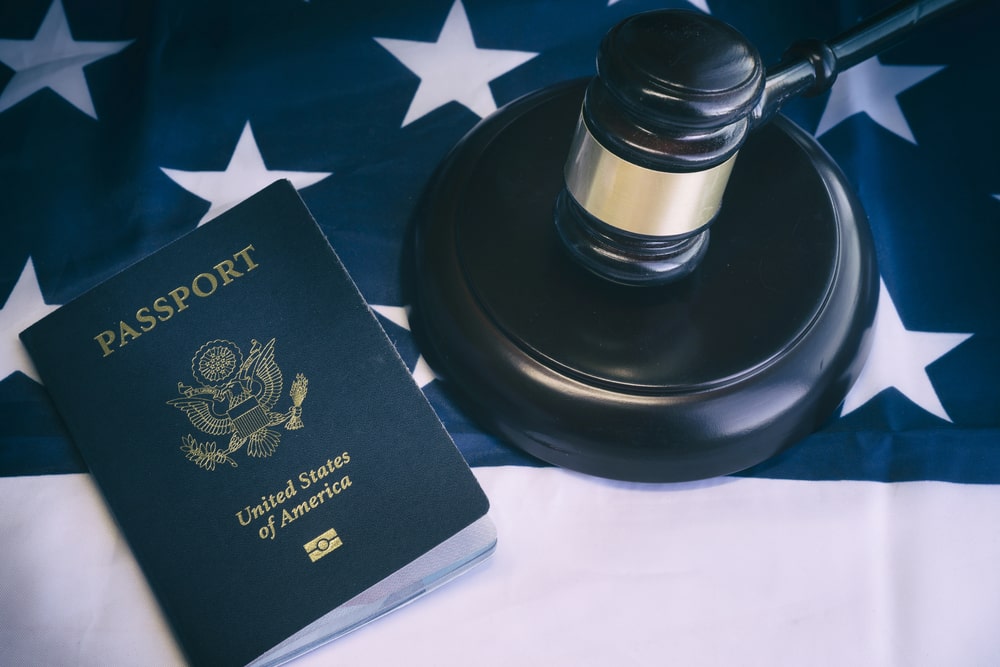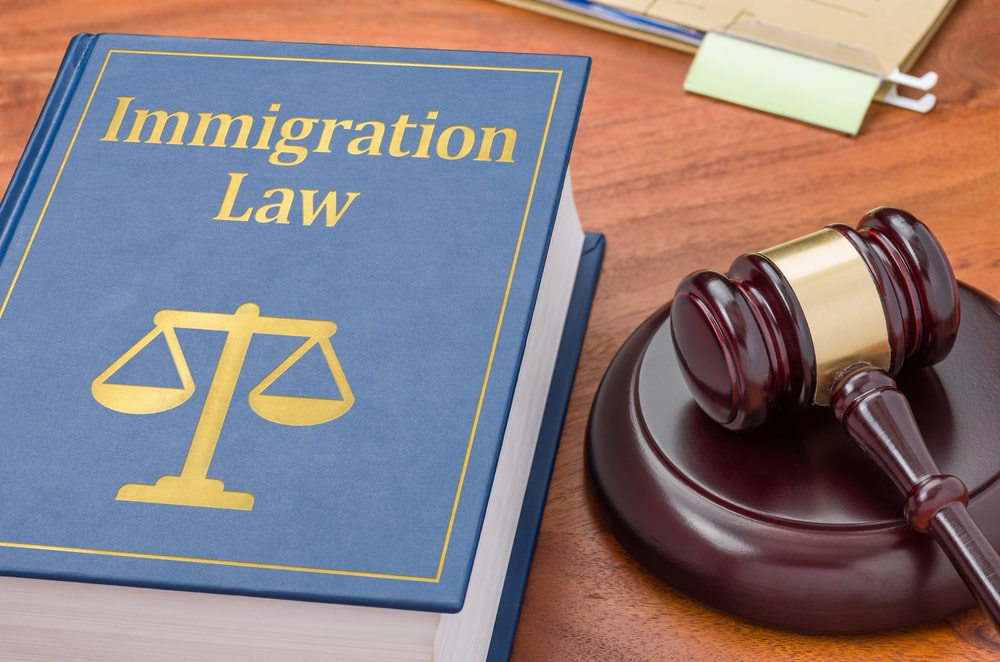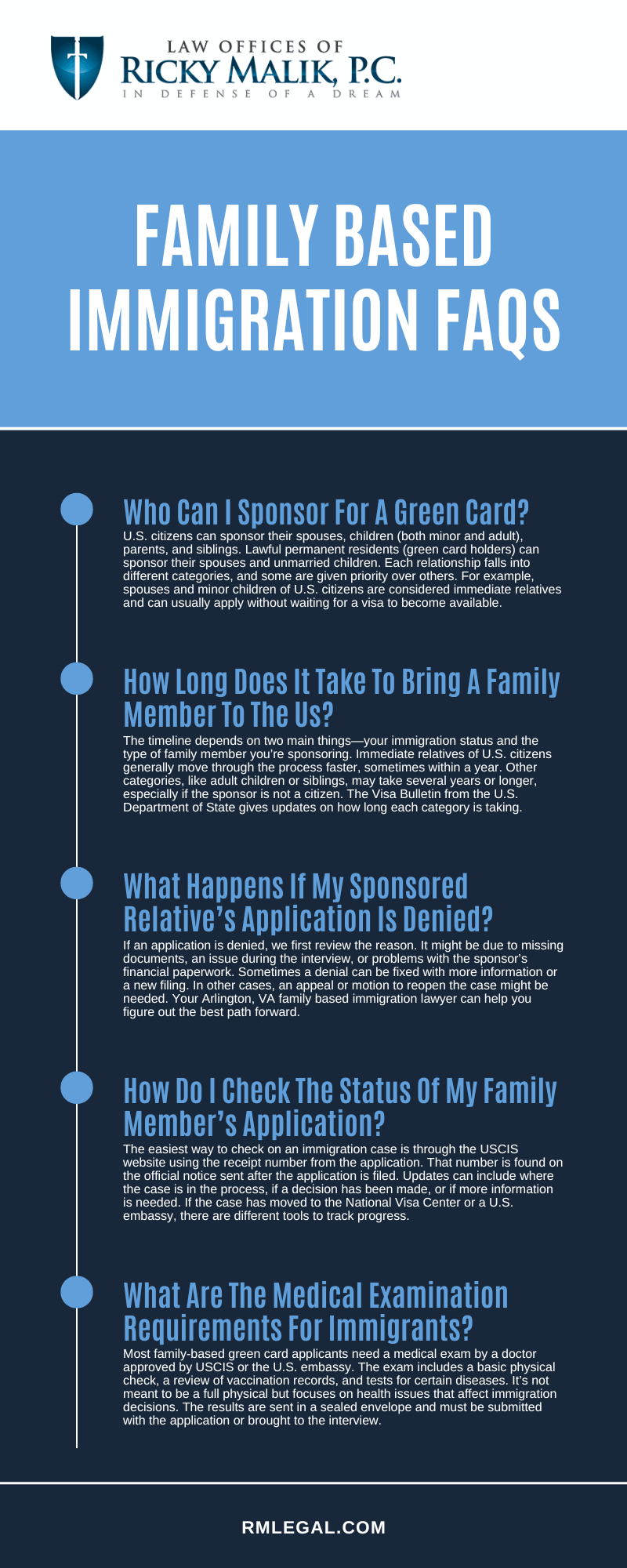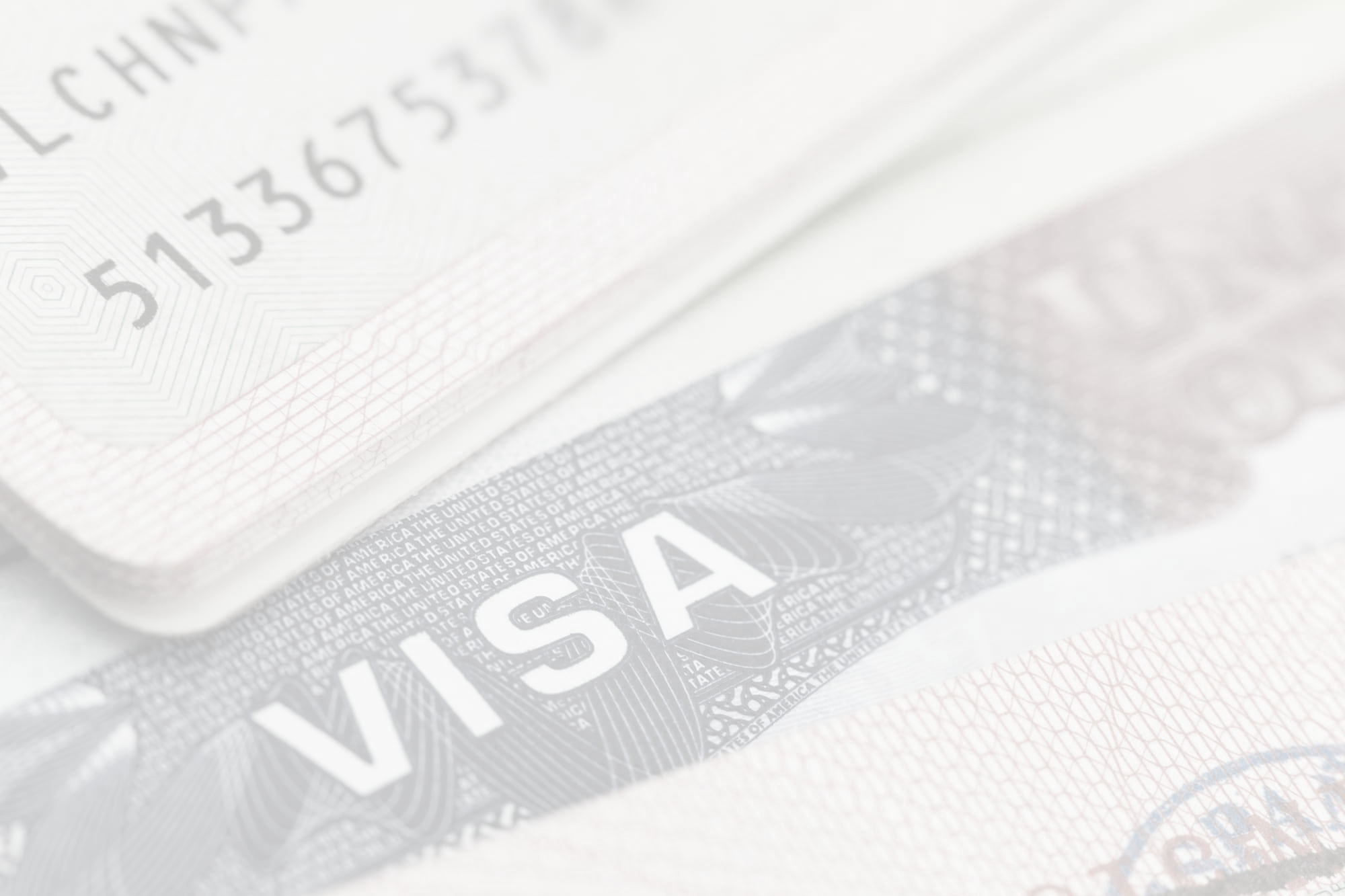
Arlington Family Based Immigration Lawyer

In most cases, a lawful or permanent U.S. resident files for an immigrant to get permission to live in the country. For help with this process, contact The Law Offices of Ricky Malik, P.C. Our Arlington family based immigration lawyer will guide you through the easiest path to obtaining visas for your loved ones. Call today to set up a meeting and learn what your options are.
Working with a Family Based Immigration Lawyer
We will outline all of the evidence and documentation you need to provide to get your family members’ visa applications approved. Depending on your relationship, it is easier. For example, immediate relatives are granted visas based on their relationship with a spouse, unmarried child under 21, or parent if they are over 21 years old. There are also provisions for orphans who you have adopted from another country. Our family based immigration lawyer will make sure all the paperwork is filed correctly and that your immediate relatives meet all the necessary requirements for approval.
Getting visas for distant family members is a little more complicated. While it is possible for you to sponsor your adult children if you are a U.S. citizen, there are limits, and preference is given depending on age and relation to you. It is not possible for an aunt, uncle, cousin, or grandparent to sponsor someone for immigration. Our family based immigration lawyer has an in-depth understanding of immigration law and will advise you on the best way to sponsor your distant relatives. We will also point out any potential objections and make suggestions for correction.
There are requirements applicants must complete before entering the country. For example, immigrants must have a medical exam. Additionally, as the sponsoring family member, you must be able to supply proof that you make enough money to support whoever you are helping get a visa. Our family based immigration lawyer will guide you through every requirement so the process is as seamless as possible for you and your family.
Benefits Of Working With A Family Based Immigration Lawyer
In addition to helping immigrant family members come over to the U.S., our Arlington family based immigration lawyer represents the interests and rights of non-citizens in court. We accompany you to every hearing or interview related to your citizenship status to ensure you are supported and understand every step of the process. This partnership is especially helpful when dealing with language barriers.
At The Law Offices of Ricky Malik, P.C., we fiercely believe that families belong together and will do everything possible to simplify your immigration process. If you need help sponsoring a family member, schedule a meeting with our Arlington family based immigration lawyer now. We are dedicated to delivering the best outcomes possible and will be your advocate through filing paperwork, attending hearings, and collecting evidence to support your application. Regardless of what stage of the immigration process you are in, our firm will support you. Don’t wait any longer to begin reuniting your family. Call us today.
Naturalization For Families
Becoming a U.S. citizen is an important milestone, and your Arlington, VA family based immigration lawyer can help you get there. Naturalization and finally achieving citizenship can feel like a long road, but knowing what to expect can make the journey easier.
At The Law Offices of Ricky Malik, P.C., we work with families to help them move toward this significant goal. We’ve represented clients at every level of jurisdiction, from immigration court to federal district and circuit courts. Our attorneys have years of experience with deportation, criminal immigration, asylum immigration, and more. We’re ready to help you, next. Read on to learn more about naturalization for families, and contact us today to get started.
Eligibility For Family Naturalization
Naturalization eligibility often depends on a few key factors, including lawful permanent resident status, time spent in the United States, and adherence to the country’s laws. If one member of the family has already become a U.S. citizen, others may qualify for naturalization through a streamlined process. Spouses, children, and other immediate family members often have pathways to citizenship that differ slightly from those applying individually, so it’s important to get in touch with an Arlington family based immigration lawyer you can trust.
The Application Process
The naturalization process begins with completing Form N-400, the Application for Naturalization. This form asks for detailed information about your background, residency, and other personal details. It’s important to fill out this application carefully and provide all the required documentation to avoid delays.
After submitting the application, families should expect to receive a notice for biometrics. During this step, applicants provide fingerprints, photographs, and signatures for background checks. Each family member applying for naturalization will need to complete this step individually.
The next phase includes an interview with a U.S. Citizenship and Immigration Services (USCIS) officer. During this meeting, applicants will answer questions about their application and take the citizenship test, which evaluates knowledge of U.S. history and government. Preparing for the interview and test is an important step in this process, and families can study together to make it a shared experience.
Special Considerations For Children
For families with children, there are additional factors to keep in mind during naturalization. Children under 18 often derive citizenship automatically if one or both parents become U.S. citizens, as long as the children reside in the United States as lawful permanent residents. This automatic process can simplify things for younger family members, but specific criteria must still be met.
Benefits Of Family Naturalization
When families achieve naturalization together, the benefits are significant. Citizenship provides the ability to vote, access to additional legal protections, and opportunities for better employment. It also offers the security of knowing that the family’s legal status in the U.S. is permanent. For parents, it’s often about creating a strong foundation for the next generation.
How We Can Help
At The Law Offices of Ricky Malik, P.C., we know that every family’s path to naturalization is unique. Whether you’re starting the process or have hit a roadblock, we’re here to guide you each step of the way. Call us today, and see what an Arlington family based immigration lawyer from our team can do for you.
Arlington Family Based Immigration Infographic
Common Delays In Family Immigration Cases
Your Arlington, Virginia family based immigration lawyer can walk you through your next steps. At The Law Offices of Ricky Malik, P.C., we’ve helped our clients with a broad range of immigration cases, ranging from deportation defense to citizenship. We’re ready to use our years of experience to help you keep your family together. Read on to learn more about family immigration cases.
1. Missing Or Incomplete Documents
One of the most common reasons for delays is incomplete paperwork. Every immigration application requires specific documents, such as birth certificates, marriage certificates, and proof of financial support. If even one required document is missing or incorrect, the case can be put on hold while waiting for the right information. Double-checking that all paperwork is complete before submission can help prevent unnecessary setbacks. If you want to avoid this delay, make sure you contact your Arlington family based immigration lawyer before you submit your documents.
2. Background Checks And Security Clearances
As part of the immigration process, applicants must go through background checks. This includes fingerprinting and security screenings, which can take longer than expected. If an applicant has a common name, has lived in multiple countries, or has a history that requires further review, the process may take additional time. While background checks are required for all applicants, delays can occur if the case is flagged for extra screening.
3. Government Processing Backlogs
USCIS and the Department of State handle thousands of immigration cases every year. Depending on the number of applications being processed at a given time, wait times may be longer than expected. Some visa categories also have annual limits, which can lead to extended wait periods if the number of applicants exceeds the available visas. Unfortunately, these backlogs are beyond an applicant’s control, and wait times can vary depending on the category and processing center.
4. Requests For Evidence
If immigration officials need more information to process a case, they will issue a Request for Evidence (RFE). This can happen if there is missing documentation, unclear information, or if additional proof is needed to confirm eligibility. Responding to an RFE as quickly as possible with the correct documents can help keep the case moving. Failing to respond or submitting incomplete information can lead to further delays or even case denials.
5. Delays In Visa Interviews
For many family immigration cases, an in-person interview is required before a visa is approved. The wait time for an interview depends on the workload at the specific U.S. embassy or consulate. Some locations have longer backlogs than others, which can delay the final decision. Scheduling conflicts, missing documents, or incomplete medical exams can also push interview dates further out. Preparing for the interview in advance and making sure all required paperwork is ready can help prevent additional delays.
Contact Us Today
At The Law Offices of Ricky Malik, P.C., we help families through the immigration process and work to avoid unnecessary delays. If you are dealing with a processing issue or need guidance on your application, contact us today, and see how an Arlington, VA family based immigration lawyer from our team can help.
Arlington Family Based Immigration Infographic
Family Based Immigration FAQs
Bringing your family to the United States can be complicated, but that’s what your Arlington, Virginia family based immigration lawyer is here for. At The Law Offices of Ricky Malik, P.C., we have assisted clients with cases ranging from deportation defense to family immigration. Now, we’re ready to use our experience to help you. Read on to get answers to the most common immigration questions, and contact us today to get started.
Who Can I Sponsor For A Green Card?
U.S. citizens can sponsor their spouses, children (both minor and adult), parents, and siblings. Lawful permanent residents (green card holders) can sponsor their spouses and unmarried children. Each relationship falls into different categories, and some are given priority over others. For example, spouses and minor children of U.S. citizens are considered immediate relatives and can usually apply without waiting for a visa to become available.
How Long Does It Take To Bring A Family Member To The Us?
The timeline depends on two main things—your immigration status and the type of family member you’re sponsoring. Immediate relatives of U.S. citizens generally move through the process faster, sometimes within a year. Other categories, like adult children or siblings, may take several years or longer, especially if the sponsor is not a citizen. The Visa Bulletin from the U.S. Department of State gives updates on how long each category is taking.
What Happens If My Sponsored Relative’s Application Is Denied?
If an application is denied, we first review the reason. It might be due to missing documents, an issue during the interview, or problems with the sponsor’s financial paperwork. Sometimes a denial can be fixed with more information or a new filing. In other cases, an appeal or motion to reopen the case might be needed. Your Arlington, VA family based immigration lawyer can help you figure out the best path forward.
How Do I Check The Status Of My Family Member’s Application?
The easiest way to check on an immigration case is through the USCIS website using the receipt number from the application. That number is found on the official notice sent after the application is filed. Updates can include where the case is in the process, if a decision has been made, or if more information is needed. If the case has moved to the National Visa Center or a U.S. embassy, there are different tools to track progress.
What Are The Medical Examination Requirements For Immigrants?
Most family-based green card applicants need a medical exam by a doctor approved by USCIS or the U.S. embassy. The exam includes a basic physical check, a review of vaccination records, and tests for certain diseases. It’s not meant to be a full physical but focuses on health issues that affect immigration decisions. The results are sent in a sealed envelope and must be submitted with the application or brought to the interview.
Family Based Immigration Glossary
When sponsoring a family member to come to or remain in the United States, understanding key immigration processes is essential. Whether you’re petitioning for a spouse, child, or parent, the immigration system involves several legal steps that require attention to detail and proper documentation. In this glossary, we’ll explore five important terms that are often part of family-based immigration cases. These definitions are designed to help you better understand the legal language and procedures involved when working with an Arlington, VA family based immigration lawyer.
Immediate Relative Category
The immediate relative category refers to specific family relationships that qualify for immigration benefits without being subject to numerical visa limits. U.S. citizens may petition for their spouses, unmarried children under 21, and parents (if the citizen is at least 21 years old). This category is prioritized within the immigration system and generally has faster processing times than other family-based categories. Unlike preference categories, there is no annual cap on the number of visas issued to immediate relatives, making this one of the most straightforward paths for family reunification.
When preparing a petition for an immediate relative, applicants must demonstrate a valid qualifying relationship and submit the necessary forms, such as Form I-130, along with supporting evidence like birth certificates or marriage licenses. If the beneficiary is already in the United States, they may also submit Form I-485 to adjust their status without leaving the country.
Affidavit of Support
The Affidavit of Support is a legally enforceable contract filed by the petitioner to show that they have the financial means to support the immigrant family member. It’s filed using Form I-864 and is required for most family-based green card applications. The purpose of this document is to prove that the immigrant will not become a public charge and that the sponsor meets or exceeds 125% of the Federal Poverty Guidelines.
This form must include evidence of income, such as tax returns and employment verification. If the petitioner does not meet the income threshold, a joint sponsor may be added to the case. The Affidavit of Support remains enforceable even if circumstances change, including divorce, and it typically stays in effect until the immigrant becomes a U.S. citizen, earns 40 work quarters, or departs the U.S. permanently.
Preference Category
When a family relationship does not qualify as immediate, the petition falls into one of the preference categories, which are subject to annual visa limits. These categories apply to adult children, married children, and siblings of U.S. citizens, as well as spouses and unmarried children of lawful permanent residents. Each preference group is ranked by priority, which influences visa wait times and case timelines.
The Visa Bulletin, published monthly by the U.S. Department of State, outlines which preference category petitions are currently being processed based on filing date and country of origin. Sponsors and applicants must monitor the bulletin closely to determine when they can move forward with the next steps of their application. Preference categories often have multi-year wait periods, so timely and accurate filing is critical.
Consular Processing
Consular processing is the procedure used when a family member is applying for an immigrant visa from outside the United States. After the I-130 petition is approved by USCIS, the case is transferred to the National Visa Center, which coordinates with the appropriate U.S. embassy or consulate. This process includes paying fees, submitting civil and financial documents, and attending a visa interview.
Applicants must also undergo a medical examination by a panel physician and present sealed results at the interview. If approved, the applicant receives a visa allowing entry into the U.S. as a lawful permanent resident. Consular processing is often the only option for relatives who are outside the U.S. and not eligible for adjustment of status.
Derivative Citizenship
Derivative citizenship refers to the automatic acquisition of U.S. citizenship by children under certain circumstances. A child may derive citizenship through the naturalization of one or both parents, provided the child is under 18, has lawful permanent resident status, and resides in the U.S. in the legal and physical custody of the citizen parent.
This legal principle eliminates the need for children in qualifying situations to go through a separate naturalization process. Parents may still choose to file Form N-600, Application for Certificate of Citizenship, to obtain official proof. Derivative citizenship is a key consideration for families pursuing naturalization, as it may simplify the path for younger family members.
If you’re working toward reuniting your family or applying for a loved one’s green card, understanding these legal terms is essential. At The Law Offices of Ricky Malik, P.C., we focus on helping families meet immigration requirements, avoid delays, and complete applications properly.
Let’s take the next step together—contact us today to speak with a qualified Arlington, VA family based immigration lawyer and get started on your case.
Contact Us Today To Get Started
At The Law Offices of Ricky Malik, P.C., we help families across the country with immigration matters from start to finish. If you’re trying to bring a relative to the U.S. or you’ve run into problems with an application, we’re here to guide you through each step. Contact us today to get in touch with an Arlington, VA family based immigration lawyer you can trust.
Common Causes Of Family Visa Delays
Your Arlington, VA family based immigration lawyer can help you keep your family together in the United States. At The Law Offices of Ricky Malik, P.C., we’ve helped clients with a wide range of immigration needs, from asylum claims to deportation defense. Now, we’re ready to help you. Read on to see some common causes of family visa delays, and contact us today to get started.
1. Missing Or Incomplete Forms
One of the most frequent causes of visa delays is missing information on required forms. Even a small error can stop a case from moving forward. When a form is incomplete or has the wrong information, the agency reviewing the case usually sends a request for more details. This adds weeks or months to the process. Your family immigration attorney can double-check every section and attach the right documents.
2. Incorrect Supporting Documents
Family visa petitions rely heavily on documentation. Birth certificates, marriage records, divorce papers, and proof of legal status must match what the agency expects to see. If anything is missing, damaged, or unclear, the agency may question the relationship or ask for replacement documents. Fortunately, your Arlington family based immigration lawyer can make sure you’ve got the right paperwork.
3. Background Check Delays
Security checks are part of every family visa case. While most checks clear quickly, some take longer. Previous addresses, name changes, or old records from other countries can slow down the process. If the applicant lived in several countries, each location may require separate screenings. As lawyers for family visa cases, we prepare clients for this step early so they know what to expect.
4. Relationship Questions Or Concerns
Family visas require proof of a genuine relationship. When the agency has questions about a marriage or parent-child relationship, the case may be delayed while they look for more evidence. This can happen when spouses live apart for long periods, when financial records don’t line up, or when documents show conflicting information.
5. Long Wait Times In Certain Visa Categories
Some visa categories have long backlogs, especially for siblings and adult children. These delays cannot be avoided, even when the paperwork is perfect. Processing times depend on yearly limits and the number of applications already filed. We help families understand which category their case falls into and how long the wait may be. Being prepared for these timelines helps families plan ahead, so it’s important to contact your family green card attorney to stay up to date.
6. Errors Made During The Interview Process
In-person interviews can be stressful, and it’s not unusual for applicants to feel nervous. When answers come out unclear or incomplete, the officer may decide to follow up with additional questions or documents. This can slow down the entire case. Preparing ahead of time helps applicants feel more comfortable and confident during the interview, which can reduce issues that lead to delays.
Contact Us Today
At The Law Offices of Ricky Malik, P.C., we’ve helped countless clients get the immigration support they need. Now, we’re ready to help you through your family visa application. Get in touch with us today, and see how an Arlington family based immigration lawyer from our team can help.








